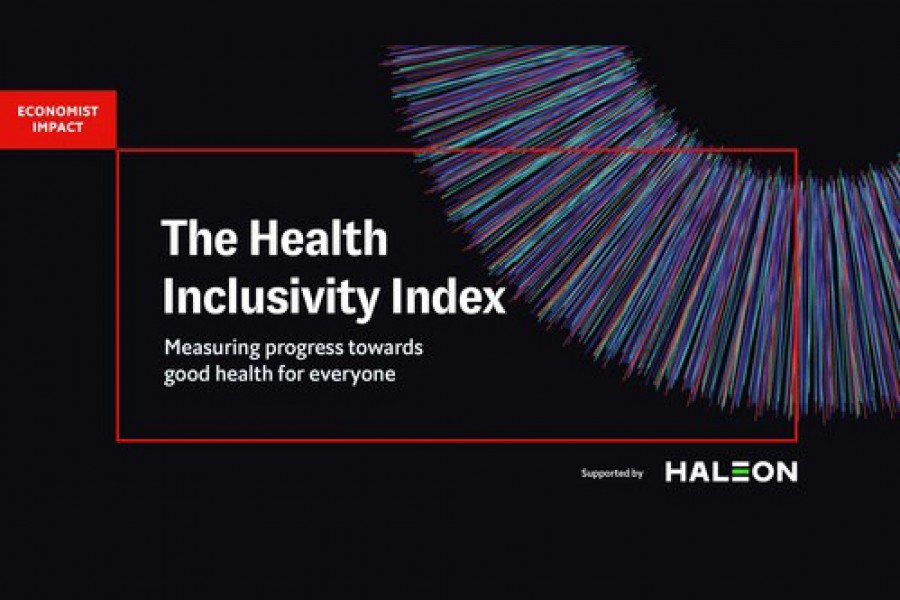Bangladesh has scored the lowest in the first-ever Health Inclusivity Index 2022 that measures progress in 40 countries towards the provision of good physical, mental and social health for all.
Bangladesh secured 30.8 points on a scale of 100 points, according to the index which ranked the United Kingdom at the top with 90.8 points.
The average score for the lower-middle income countries including Bangladesh, Philippines, Ukraine, Vietnam and India was 54.1 points, according to the report.
The UK-based The Economist Impact on Tuesday revealed the inaugural edition of the global report with the support of Haleon, a British multinational consumer healthcare company.
Bangladesh was followed by Algeria, Egypt, Honduras and India with their poorest health inclusivity scores.
The UK, Australia, France, Germany and Sweden were found to have the most inclusive approaches to health.
The report ranked the countries on the issue of health inclusivity, defined as "the process of removing the personal, social, cultural and political barriers that prevent individuals and communities from experiencing good physical and mental health, and a life fully realised".
It used 37 indicators developed by The Economist Impact to demonstrate the levers governments can use to address health inequity and promote inclusion, and to show how effectively these are used.
Countries were scored across three key areas or domains such as Health in Society, Inclusive Health Systems, and People and Community Empowerment.
Health in Society domain comprises indicators designed to assess how highly a nation values the health of its people, and whether it considers health across all the policies of its government.
The Inclusive Health Systems domain included indicators to measure the strength and scope of the healthcare system, and whether cost is a barrier to accessing services.
People and Community Empowerment domain measures efforts to ensure that healthcare services are designed to be inclusive, accessible, and tailored to individuals and their preferences, including those from vulnerable groups.
The report said households from India, China, Bangladesh and Egypt were most likely to spend more than 10 per cent of their income on health.
It also said most of the countries laid emphasis on the notion of well-being, whereas Algeria, Bangladesh, Cuba and Egypt did not include the notion of "well-being" in their national health strategies.
The index intends to help governments benchmark their progress and identify opportunities for improvement.
Forming part of a three-year programme, The Economist Impact and Haleon intend to double the number of countries included in the Index over the next two years to provide a more comprehensive picture of global health inclusivity, encourage engagement and dialogue, and spur action on health inclusivity.


